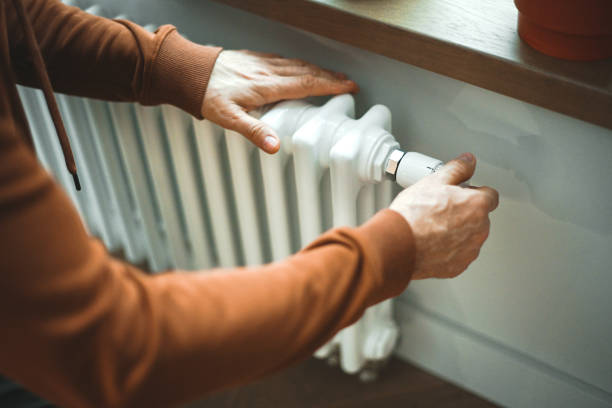Installing central heating for the first time is a big step towards a warm and cosy home. It’s important to take some essential precautions to ensure everything goes smoothly. First, make sure to hire a qualified professional to handle the installation. This helps avoid any potential safety hazards. Next, check your home’s insulation to make sure you get the most benefit from your new system. Lastly, explore your options for first time central heating grants, which can help cover the costs. By taking these precautions, you can enjoy a safe and efficient central heating system in your home.
Central Heating Systems
Central heating systems distribute heat from a central source throughout a home. Essential parts include a heating unit, radiators or an under-the-floor heating system, and a system of interconnected tubes. A heating system heats water, which passes through the tubing to give warmth to different places in the house. Grasping these basics is crucial before going into the installation process.
Professional Assessment and Planning
Initial Assessment
Before installation, you must have a professional look at your house. This includes figuring out how big the house is, how many rooms it has, and how well it is insulated right now. A professional who knows how to figure out heat loss figures out how much heat each room loses so they can see what kind and size of boiler they need.
System Design: Proper design ensures the system can efficiently heat the entire home.
Planning and Layout
For the perfect laying out of tank radiators, a well-considered plan on the part of a breeder is absolutely necessary.
Pipe Routing: Create a plan for less heat loss and even heat distribution as far as possible.
Radiator Placement: Strategically place radiators to maximise efficiency and optimal heating.
Quality of Components
Pipes and Radiators
Using quality pipes and radiators is important because it makes sure the heating system will last a long time and work well.
Material choice: For the radiator, choose steel or aluminium, as well as copper or PEX tube or pipe, which don’t rust and also let heat flow well.
Sizing: Ensure radiators are appropriately sized for the rooms they are heating.
Controls and Thermostats
Improving your heating system efficiency significantly is possible through modern controls and thermostats. With a programmable thermostat, you can set the temperature for each day, which saves energy. Smart heating systems can learn how you like the weather and be set from your phone.
Safety Measures
Gas Safety
It is always very important to ensure gas safety when your heating system is using it.
Registered Installer: If you want someone Gas Safe-certified to help you install and take care of your gas boiler, you should only hire them.
Getting enough airflow is important to keep dangerous gases like carbon monoxide from building up.
Electrical Safety
Parts that keep electricity safe, like RCDs and circuit breakers, should only be put in by trained electricians. This protects the boiler in the right way. Circuit breakers and RCDs are two examples.
Proper Insulation
When you insulate lines in cool places like attics and basements, heat doesn’t escape as water moves through the system.
Home Insulation
Effective insulation reduces heat loss and improves your central heating system’s efficiency.
Wall and Roof Insulation: Insulate walls and roofs to prevent heat from escaping.
Double Glazing: To improve thermal efficiency, fix double-glazed windows.
Pipe Insulation
The water inside a pipe will stay at a steady temperature and be less likely to freeze if you protect it. Pipe lagging is the name of this type of insulation. It makes a safe layer that can be used in cool places, like attics.
Maintenance and Servicing
Regular Maintenance
It is important to do regular repairs on your heating system so that it works well and safely.
Boiler annual servicing: Schedule an annual servicing for the boiler and other parts.
System Checks: Regularly check for leaks, unusual noises, or drops in pressure.
Bleeding Radiators
Radiators work less well when air gets stuck in them.
Bleed Valves: Use bleed valves to release trapped air and ensure radiators heat up evenly.
Conclusion
Setting up central heating in your home will cost a lot of money. These steps will help you get set up. One way to improve the performance of a heating system is to have a professional check it out. Another is to choose a boiler. Following safety rules and doing regular maintenance are also important. Benefits like the main heating unit can help you build a warm, energy-efficient home if you plan ahead. With these tips, your heating system will work better, be safer, cost less, and hurt the world less.
